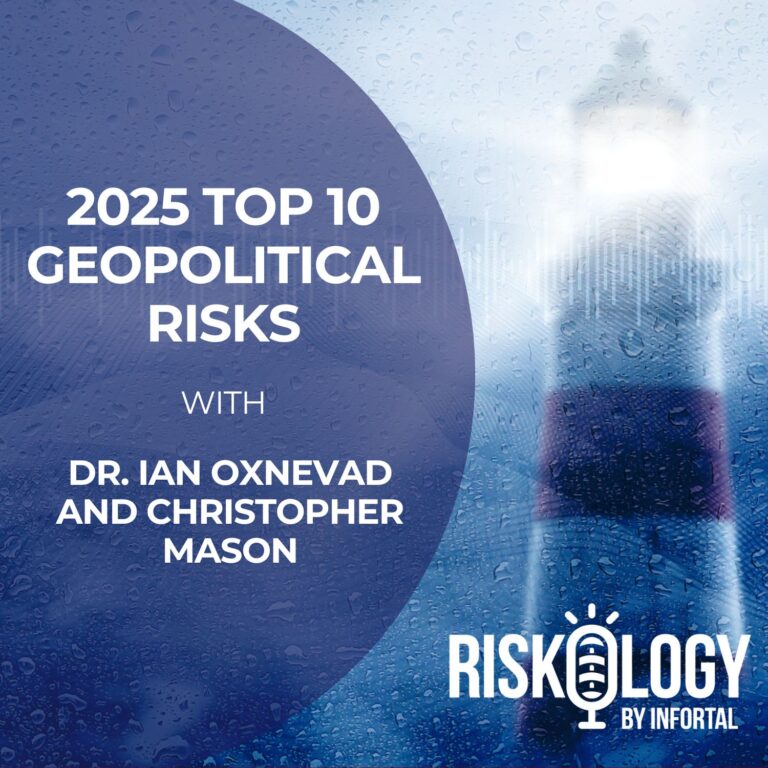In 2025, the geopolitical game is changing.
After over half the world voted in elections in 2024, we’re on the brink of significant regulatory shifts impacting businesses globally.
As we look at 2025, different administrations will clash, shaping a competitive landscape of rules and norms. This means compliance teams will be in high gear as companies must adapt to new regulatory demands.
In the first Riskology episode of 2025, hosts Dr. Ian Oxnevad and Chris Mason break down the top 10 geopolitical risks for companies to consider in 2025.
- Global Conflicts – Understanding the overarching impact of global conflict on every aspect of business, from tariffs to supply chains.
- U.S.-China Trade Wars – Analyzing the implications of trade tensions on global markets and supply chains.
- Supply Chain Risk – Examining the evolving nature of supply chains amid geopolitical shifts and conflict.
- Social Unrest and Terrorism – Evaluating the business implications of social movements and terrorism worldwide.
- Cybersecurity Threats – Discussing the rise of state-backed cyber threats and the importance of robust cybersecurity measures.
- Economic Espionage – Exploring the growing threat of economic espionage, highlighting the need for vigilance.
- Shifting Regulatory Environment – Predicting the regulatory changes under new administrations worldwide and their effects on businesses.
- AI Governance – Considering the various directions AI governance may take amid the international race to lead in AI technologies.
- Environmental Risk – Highlighting the geopolitical impacts of environmental events on business operations and supply chains.
- Global Migration – Discussing the complexities and economic impacts of migration trends influenced by global conflicts.
In 2025, global conflicts will not just be featured in the headlines; they will impact us all, shaping migration patterns, market performance, and corporate strategies.
It’s crucial to conduct contingency planning specific to your industry. Riskology by Infortal™ host Chris Mason notes that “…contingency planning for the larger financial institutions…involves stress testing, looking at things like liquidity and what your investment portfolio looks like.” Contingency plans provide alternative strategies that prepare your business for potential disruptions caused by geopolitical risks, ensuring business continuity.
Companies should also focus on training their teams, especially in cybersecurity and economic espionage. Ensuring you provide training to your team, particularly at the board level, will strengthen your firm’s ability to deal with emerging threats. Training also aids in quicker response times and empowers employees to identify and react to threats effectively.
Want to stay ahead of the geopolitical risk curve? Check out Riskology by Infortal™ Episode 39!
Resources:
Dr. Ian Oxnevad on LinkedIn
Chris Mason on LinkedIn



